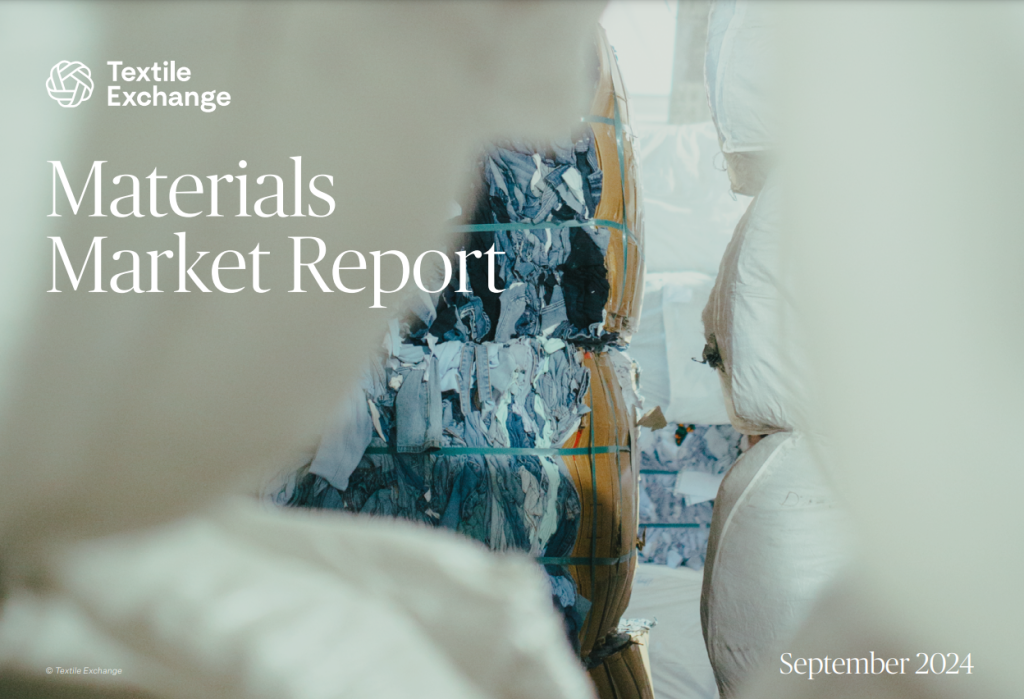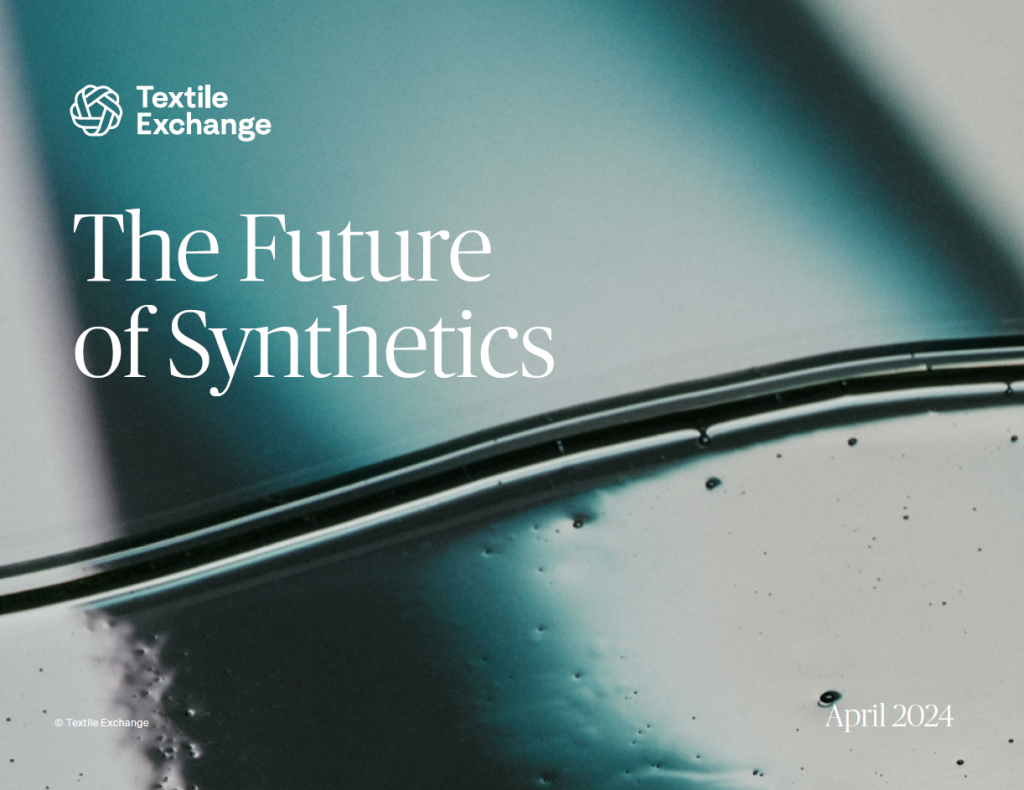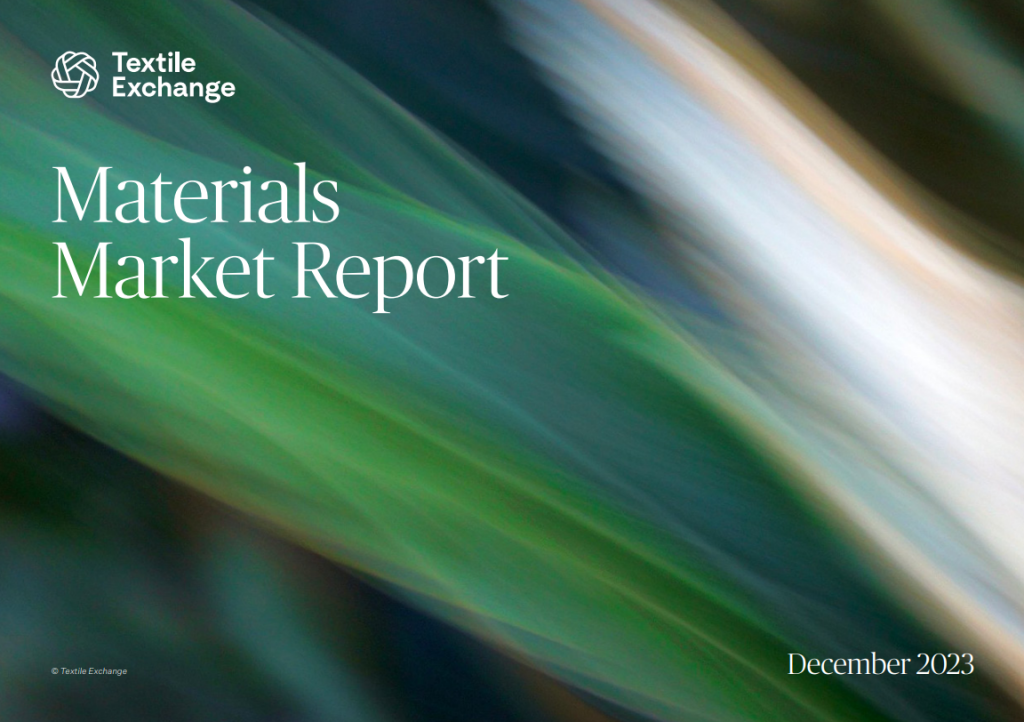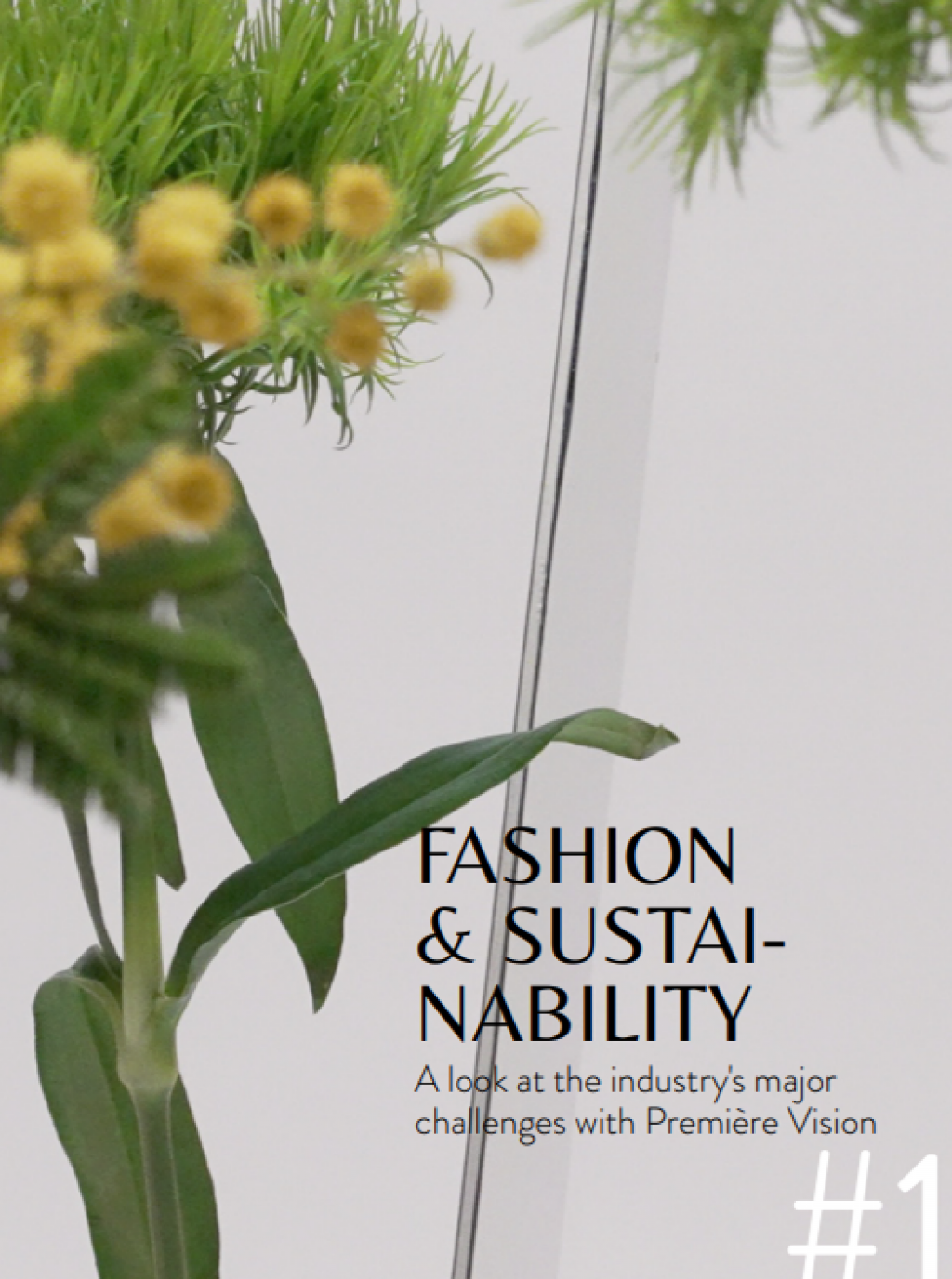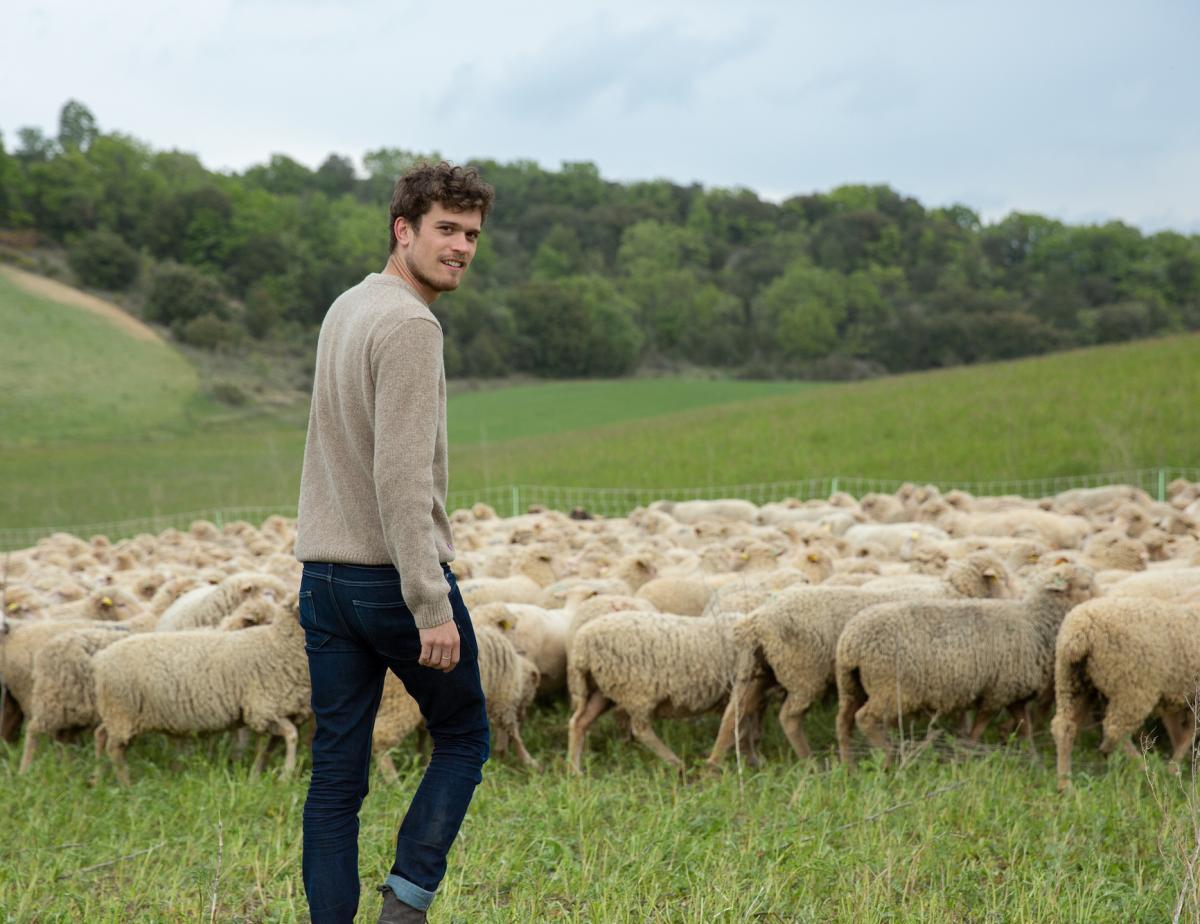
Can you briefly describe your approach?
Our first challenge is to manufacturer underwear entirely in France, from thread to finished product. So, in the first instance we’re focusing on materials in four areas: quality, locally-sourced, recycled and recyclable, increasing product service life.
Even if our priority is to manufacture in France, we are aware that eco-design is not only about biosourced materials but also about looking at a product in its entirety.
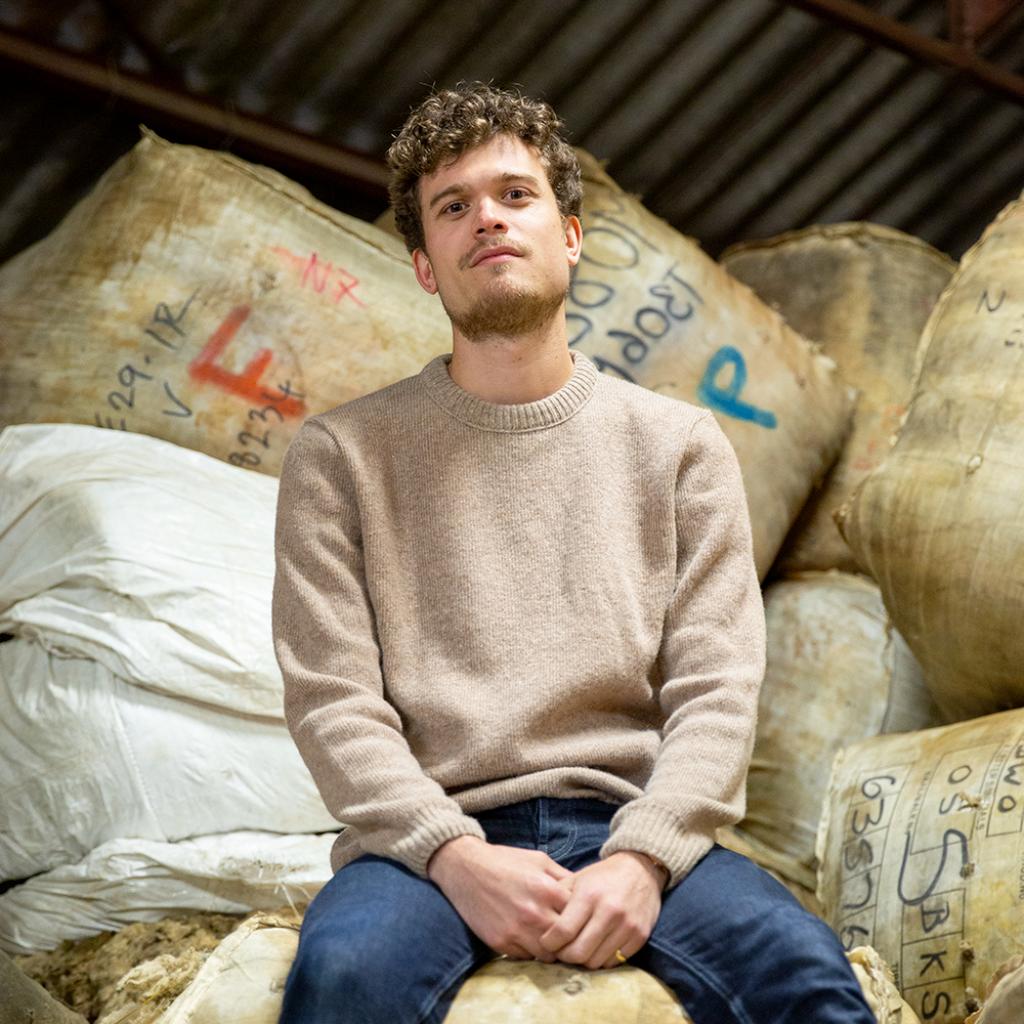
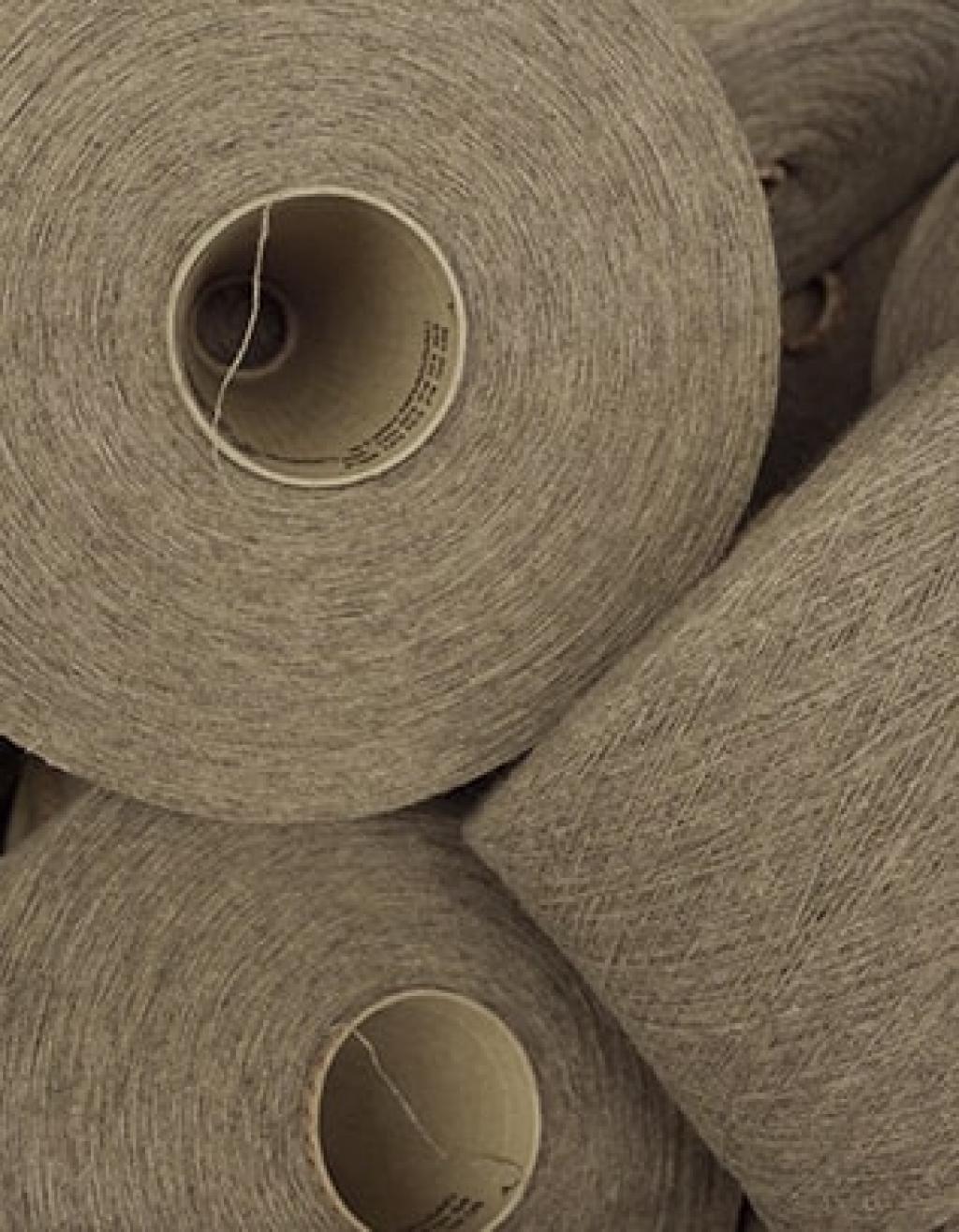
What working method did you use? What were the different stages?
We would like go a step further in this approach and find a local alternative each time that it’s possible. For example, today most of the wool used in France is imported from Australia. However this sector also exists in France but is underused. At the end of 2019, we marketed our very first pullover, the Ludo, made from 100% French wool and eco-designed (a single material, not dyed and that can be recycled).
Another project, is the Moncoton initiative, started by the “1083” team in 2018. The goal here is to create a new type of cotton thread for clothing in France made from used clothes, in particular jeans and underwear.
The “Slip Circulaire” (circular briefs) project, a Moncoton sub-project, partly funded by Refashion under the 2019 Innovation Challenge, is more specific to underwear. The aim is to successfully manufacture recycled cotton made from used underwear.
Did you encounter any obstacles? And if so, which ones?
The first obstacle was a financial one because textile brands today have substantial profit margin targets which are impossible for an SME choosing the “Made in France” approach to achieve. Smaller profit margins need to be accepted (our ratio is between 2% to 3%). However, our retailing system via our internet site enables us to increase this margin.
Then, we needed to accept that we had to make compromises: some of our materials or supplies are not yet manufactured in France. The elastic in our burgundy-coloured La Augustine bra comes from Italy.
We are also facing one dilemma: ecological materials exist (biological, recycled, the manufacturing process of which is environment-friendly, etc.) but these are not produced in France. Similarly, recycled polyester comes from Italy or Spain as there’s no French alternative yet. We have to choose where our priorities lie: the Made in France or ecological materials?
What were the levers for success?
An experienced workforce throughout the entire production line exists in France and it’s an opportunity to be able to benefit from this know-how. We maintain a close relationship with our suppliers: we work with Filatures du Parc for our Le Ludo pullover, with Neyret for the embroidery of our logo, Sophie Hallette for our swimwear as well as numerous others suppliers around France. Lemahieur is our long-time design manufacturer.
We often go to meet them which greatly helps discussions. Proximity is a true factor of success as it also enables us to move much faster on our projects.
Since 2011, we’ve noticed that workshops have regained confidence and want to move forward.
Are you looking at ways to improve?
Above all else we are committed to innovation, in particular with the Slip Circulaire project. We would also like to continue to re-boost craftsmanship in France, particularly through products such as our Ludo pullover. By 2024 we want 24% of the wool in our products to be French through our partnership with the Made in Town Agency, specialised is promoting regional and local know-how.
More generally, the consideration given to materials and the eco-design of products are fashion’s future and The Slip Français is aiming to integrate these issues as much as possible in everyday business.
Thank you Antoine MOREL, former “Bon Sens” (makes sense also known as CSR) Manager, Slip Français.
Contact : bonjour@leslipfrançais.fr


